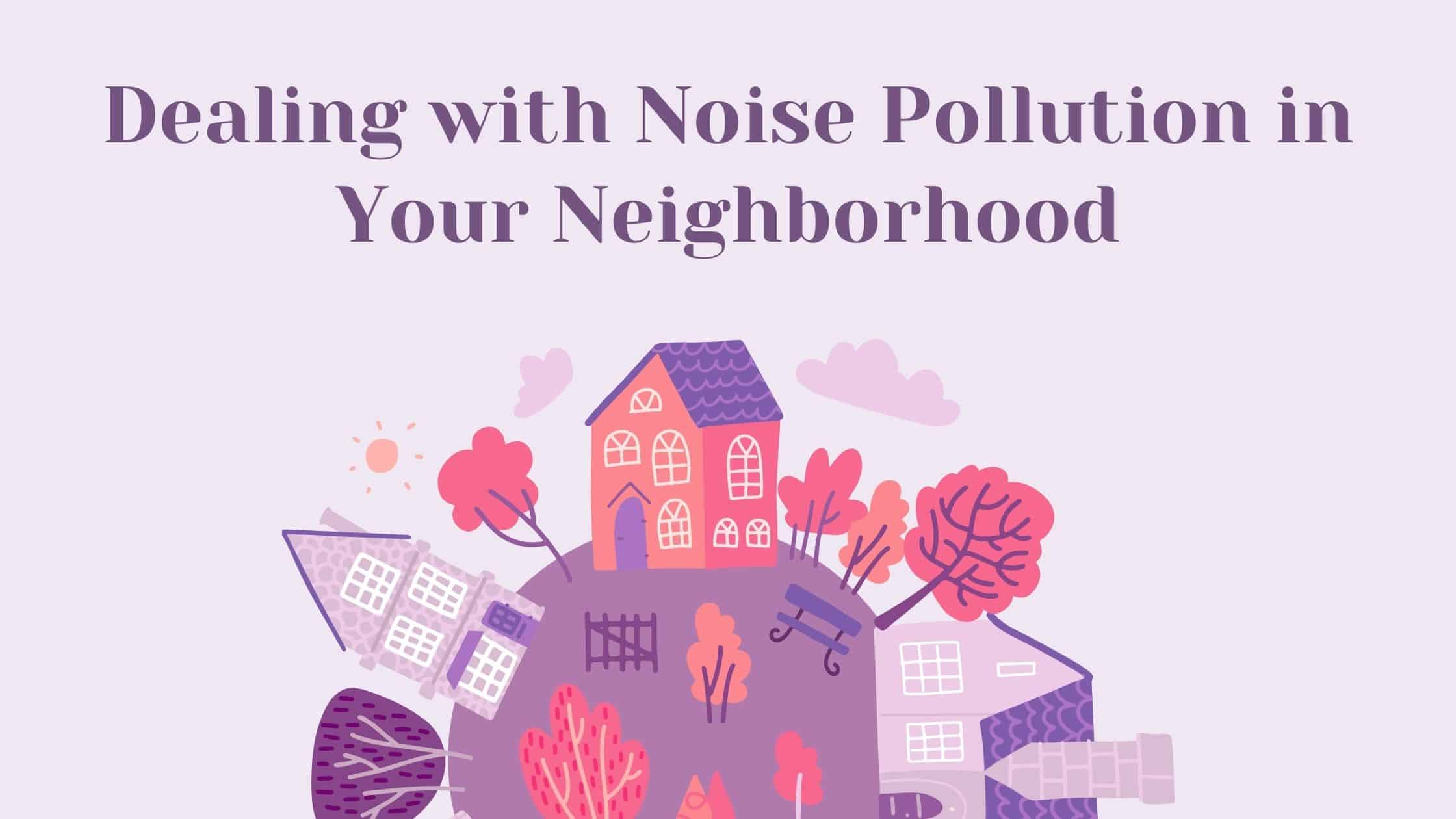As our towns and cities continue to develop and industrialize, we are faced with ever-more noise in our environment. Some of this noise falls well below the threshold necessary to induce hearing loss, yet even this consistently quiet sound can lead to negative mental health effects. Those who are consistently exposed to noise tend to have higher levels of anxiety than their counterparts. The causes of noise pollution might surprise you, as well. Some of the causes are clear, such as those people who live near an airport. Yet, some of the other causes are less obvious, leading us to wonder how noise pollution transmits through space and how serious its effects can be. Let’s look at a few of the common causes of noise pollution, as well as some of the public policy strategies that have been pursued to abate noise in public and residential spaces.
Causes of Noise Pollution
Transportation is one of the most common causes of noise pollution. Whether it comes from a nearby highway, traffic on a smaller street, an airport, or a train, this noise can reach dangerous levels. Depending on the type of transportation, the noise might be concentrated during the waking hours, which is helpful for those who suffer sleep disturbances from noise pollution. Other noise pollution comes from construction and industrial machinery.
In the first place, the construction site might be a periodic inconvenience, and permanent industrial machinery tends to be hidden behind thick walls to provide sound protection. More serious ongoing concerns have to do with periodic events with live and recorded music. Many European countries have become serious about these effects, placing strict limits on the decibel levels emitting from music venues and dance clubs with serious enforcement. In the United States, these limitations tend to be more flexible, leading to conflict between musicians, venue owners, and the residents of these neighborhoods. A final cause of noise pollution currently in the news are wind farms. These giant windmills are popping up in rural areas, and they seem quiet from a distance. However, they emit a low-frequency hum that has caused great anxiety among some nearby residents in these otherwise quiet neighborhoods.
Policy Solutions
As mentioned, each country is quite different in its approach to noise pollution policy. Some countries are quite strict in their regulations, but the United States has tended to take a more laissez-faire approach to prevention and restriction. As individual citizens, you can advocate for policy makers to fund and provide sound protection walls between highways and residential areas, and local politics can be a good way to deal with recreational noise from music venues and clubs.
At the general level of public policy, health organizations have taken note of the health conditions that are connected to noise pollution. These problems certainly include anxiety, sleep disorders, irritability, aggression, and work dysfunctions. Beyond these problems that are related to mental health, some physical problems have been identified, as well.
Those who live in places with high levels of noise pollution experience higher rates of heart disease, diabetes, and stress hormone release. The effects of stress hormones on the body are wide-reaching, prompting public health officials to take seriously the threat of noise pollution for physical health.
At the level of individual activity, many people seek solitude in quiet urban spaces and parks. Smartphone apps are now available to help identify and locate quiet public amenities such as cafes and restaurants where a person can easily work in silence. They have also begun coding quiet public and outdoor spaces in cities, including not only a description of the park or public area but also a decibel reading and even a recording of the sounds nearby. Although it is difficult to get away from the hum of traffic in most cities, these quiet places can provide solace away from noise pollution for many people.
If you are concerned about noise pollution in your area, you can advocate for your needs with policymakers. Don’t hesitate to get in touch with legislators or your mayor’s office to voice your concerns and to see what can be done. In some cases, there will be a direct response, and in others you might be raising general awareness of the need for noise pollution abatement programs.
Treating Hearing Loss
Are you concerned about your hearing abilities? We’re here to help! We provide comprehensive hearing health services. Contact us today to schedule an appointment.

